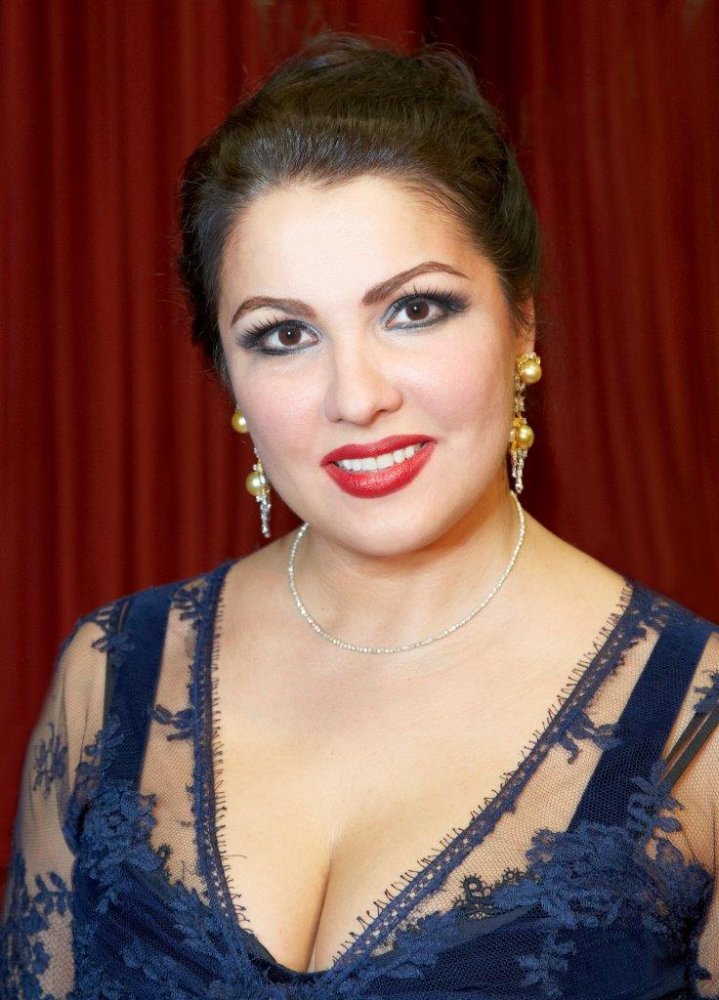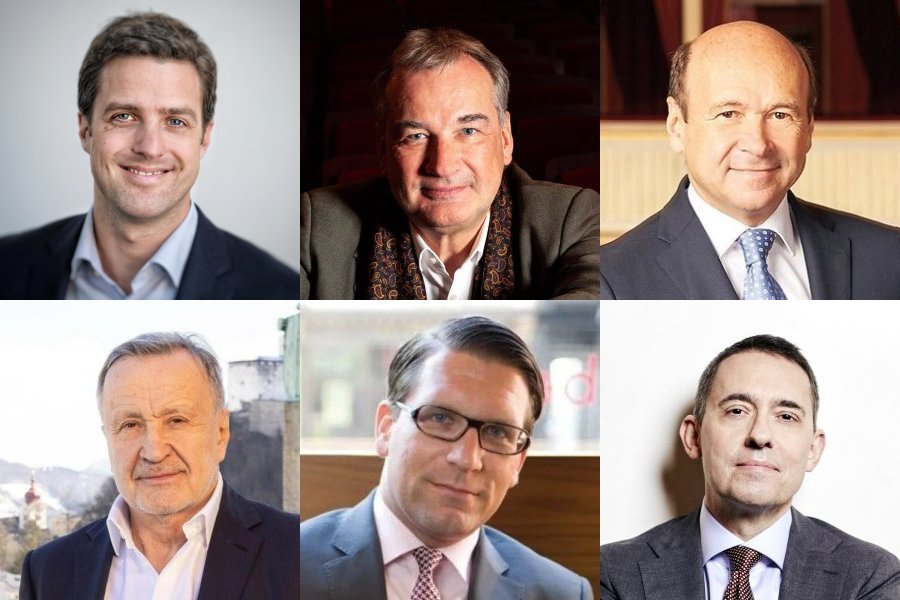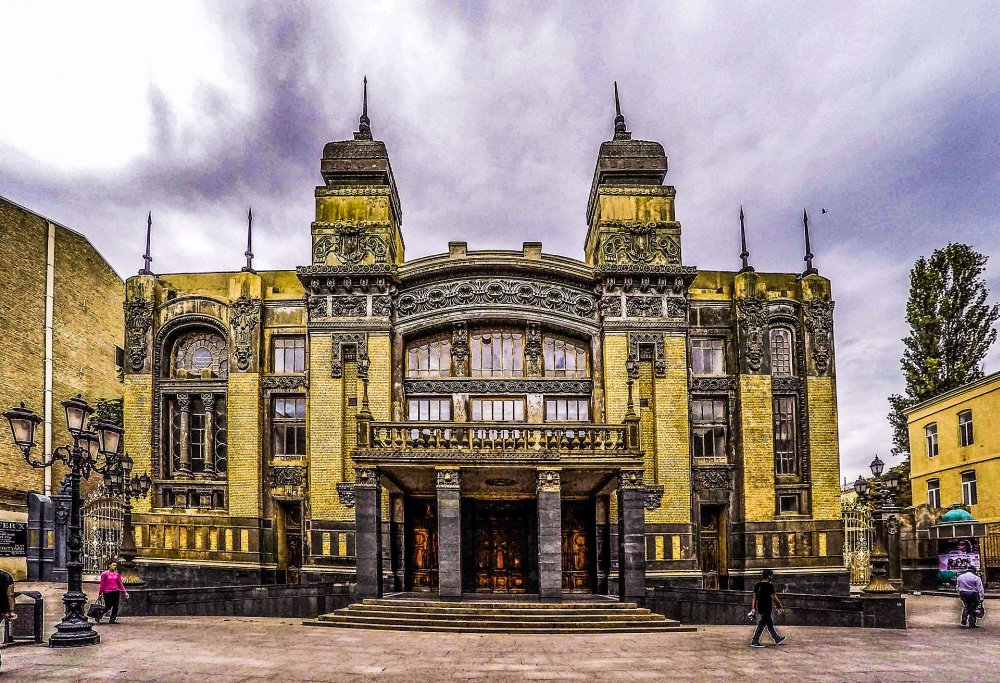The Anna Netrebko case
European opera managers are setting a dangerous precedent
Powerful directors in Europe declare the Russian singer rehabilitated – and thus conceal their own failures
Martin Kienzl • 13. April 2023

Let me say this first: If the Anna Netrebko case is mentioned here again, it is not to tarnish individuals or to harm them personally. Rather, this case should be an occasion to reflect on what constitutes an artist, what criteria should apply in the future, and how we – and that includes the opera world – should behave in order to preserve freedom, tolerance, and democracy.
History teaches us that evil approaches in small steps, and while each individual step is too small to provoke public outrage, in the end, it is ultimately too late to circumvent catastrophe.
Therefore, we must always keep in mind what these seemingly small steps look like, and be aware that they are sometimes taken by leading members of the classical music world. These include: expressions of sympathy for enemies of democracy, publicly-subsidized appearances by propagandists of a terrorist regime, election appeals for autocrats, propaganda advocating for revanchism and imperialism, approval of sham referendums (Justus Frantz and Ioan Holender declared in unison with regard to the Crimea vote of 2014, one should follow the "will of the people" 1), legitimization of autocracy, support for a regime that commits war crimes, fuelling of wars of aggression and the rejection of pluralism.
Unfortunately, we are again living in times when it is necessary to recall that accepting these "small steps" without consequences threatens to lead to disaster. If assenting to totalitarianism and terror is declared a "socially acceptable normality" in the West, our democracy is discredited as weak and ridiculous by politicians like Putin.
Bruno Walter, the great conductor who came from a German-Jewish family and had to flee from the Nazis, met the Vienna Philharmonic again for the first time after the catastrophe of World War II in September 1947. He greeted the orchestra with the words "We musicians must decide. Either we want to be of good will, or we don't. And we must be role models."
Society makes the difference
What kind of effect does it have on subsequent generations if the above-mentioned "small steps" are generally accepted? What signals are sent to young artists when they see they can successfully promote their careers with impunity from these actions? When they realize there is no consequence to availing oneself of the support of authoritarian, anti-democratic groups? What impact does it have on our society to look the other way when political positions are taken that are aimed at destroying a rights-based set of values? How vigilant and steadfast in our views do we remain? Latvian Defense Minister Inara Murniece recently said a remarkable phrase about this: "Because we know from the experience of Ukraine that without a morally stable and vigilant society, it is not possible to confront an aggressor." 2
Considering that in Europe – very much in contrast to the USA – many artistic directors have been willing to engage professionally with certain artists, regardless of those artists using their celebrity status to oppose freedom, democracy and peace, it is essential that members of the art world speak out about the danger this poses.
Especially in the world of art, whose responsibilities include both assessing contemporary society with a critical eye as well as raising awareness amongst consumers of art, one should expect cautiousness towards these dangers and the ethical questions that arise. If large portions of the economy and some representatives in politics are guided primarily by material considerations, then art in particular should transcend these, and critically reflect on the state of society and, if necessary, be a warning.
Artistic directors without a compass

Where were most of the directors and artistic directors, who prominently and frequently feature the path to genocide in the 1930s and 1940s on their stages, in 2014 when this war in violation of international law actually began. And why are they not calling for vigilance against similar atrocities in the present day? How can it be that even in 2022, when it became clear that a genocide had begun here, the indignation of many failed to materialize and remains absent to this day?
One cannot take the responsibility away from those who look the other way and whitewash, they are also partly to blame for the fact that the catastrophe of this war could come about. Is there still a moral compass, or has it already been lost? In view of the fact that there are still directors whose leadership style is pretentiously authoritarian, who hire unquestioning artists who fuel violence or are #MeToo perpetrators, one doubts it.
At the beginning of April, Berlin's State Opera Director Matthias Schulz hesitantly, but nonetheless, joined the ranks of those who, in keeping with the zeitgeisty motto of "Fuck your conscience" (© Austrian National Council Member Maria Grossbauer 3), are inviting Anna Netrebko back. He does not seem to be entirely comfortable with this decision. If you listen to the interview conducted by Andreas Jölli in the Ö1 Morgenjournal of April 3, 2023, strong doubts about the correctness of this decision come through. Nevertheless, it was made. The argument for it: "She has decided in favor of European stages. It would be a big problem for me if she suddenly appeared at the Saint Petersburg White Nights." The White Nights are a festival directed by Valery Gergiev.
Matthias Schulz must not be so sure of that. Netrebko is also on the artist list of her agency Berin-Iglesias, which has been working for her in Russia for decades, in March 2023 (quote Maxim Berin to the author: "What kind of dialect is supposed to be Ukrainian, please?").
As recently as February 24, 2023, the Russian state news agency RIA published a major article "How our stars are conquering Europe and the USA." In this article, Netrebko’s evening performances in Milan and Wiesbaden were listed as proof of this "conquest" - and their artistic directors Dominique Meyer and Uwe Eric Laufenberg were celebrated accordingly (as if Netrebko were no longer liked in Russia!). RIA is the news agency that published the article "What Russia should do with Ukraine" on April 3, 2022, which denies Ukraine its right to exist and legitimizes the Russian invasion of Ukraine.

Netrebko is currently obviously "on hold" for the Putin regime. The wish, clearly articulated on Netrebko's “To Berlin” T-shirt in Vienna on May 9, 2010, to extend the Russian sphere of power to Berlin again, does not seem to be over yet. Presumably, Netrebko's participation in the "victory celebration" on the occasion of the "reversal" of German reunification at the Brandenburg Gate can be expected then. Until then, she will possibly move her center of life to Baku. In the capital of Azerbaijan, which is currently ranked 154th out of 180 countries on the Reporters Without Borders press freedom index, her husband Yusif Eyvazov was appointed opera director of Azerbaijan's National Opera House a few days ago. 4
At the moment Anna Netrebko is not (yet?) singing in Russia. By not performing in that terrorist state, which she has supported in words and deeds that she has never rescinded nor renounced, she has been deemed as having done enough to be engaged again on stage in Berlin and other sites in democratic nations. Once again, German taxpayers' money is flowing to a person who in the past has blatantly advocated the fight against our democracy, denied Ukraine its national identity and called for the violent revision of the European post-war order.
That her statement "I want this war to stop" is accepted by European directors as an excuse for these aberrations is quite astonishing - because even Putin would sign these words with a clear conscience, by following his own logic.
Andreas Jölli inquired of Matthias Schulz: "Has she sufficiently distanced herself from Putin?" Schulz: "To my taste, not really sufficiently in words, you can't say that."
To save the music world, it should be noted in conclusion that not all members of this community think and act like Matthias Schulz, Alexander Neef, Nikolaus Bachler, Uwe Eric Laufenberg, Dominique Meyer, Kai Gniffke or Bogdan Roščić. There are still people who are committed to a basic ethical stance, even in the opera world. History will prove them right.
We thank Migdalia R. Tracy for her valuable help in ensuring that this English translation is at a professional level.
Original German version of this article
References
1 TV broadcast "Kultour mit Holender" ("Cultural tour with Holender"), Servus-TV on January 3, 2021
2 Mit einem Satz hält uns Putins kleiner Nachbar den Spiegel vor ("In one sentence, Putin's little neighbor holds up a mirror to us.") by Ulrich Reitz, focus.de, April 6, 2023
3 Original quote: "Auf’s Gewissen wird geschissen", ORF TV broadcast "Seitenblicke", March 29, 2023
4 Netrebko's loyal husband poses in his new domain by Norman Lebrecht, slippedisk.com, April 11, 2023
Other articles on the subject of Ukraine/Russia (in German)
OPERN∙NEWS
Internationale Reaktionen auf OPERN∙NEWS Unsere Kommentare und Recherchen zum Thema Ukraine bzw. Russland gingen global viral. Ein Überblick. - by Stephan Burianek, April 3rd, 2023
OPERN∙NEWS
Anna Netrebko: Das doppelte Spiel geht weiter. Bis heute wartet man vergeblich auf ehrliche Worte des Bedauerns der bekannten russischen Opernsängerin. – by Martin Kienzl, February 7th, 2023
OPERN∙NEWS
Ildar Abdrazakov: Die Verlockungen von Macht und Geld. Nach unserem Artikel vom 22. Februar sieht der russische Starsänger in den USA und in Europa seine Felle davonschwimmen. In Russland ist er indes gut versorgt. – by Stephan Burianek, February 26th, 2023
OPERN∙NEWS
Putins Propagandakünstler: Im Dienste des Bösen. Wer Anna Netrebko kritisiert, der muss erst recht den nicht minder gefeierten Bass Ildar Abdrazakov unter die Lupe nehmen. – by Stephan Burianek, February 22nd, 2023
OPERN∙NEWS
Interview: „In Russland leben nur wenige ‚echte‘ Russen“. In der Ukraine ist russische Musik verboten. Die krimtatarisch-stämmige Mezzosopranistin Lena Belkina erklärt, weshalb das kein extremer Nationalismus sondern eine Überlebensstrategie ist. – by Stephan Burianek, March 15th, 2023
OPERN∙NEWS
Olga Bezsmertna: „Wir waren nie Brüder und Schwestern“. Die ukrainische Sopranistin über die Frage, was sie über ihre russischen Kolleg:innen denkt, welche Werke ihrer Heimat bei uns noch entdeckt werden sollten und wie sie es mit der Regie hält. – by Stephan Burianek, June 10th, 2022